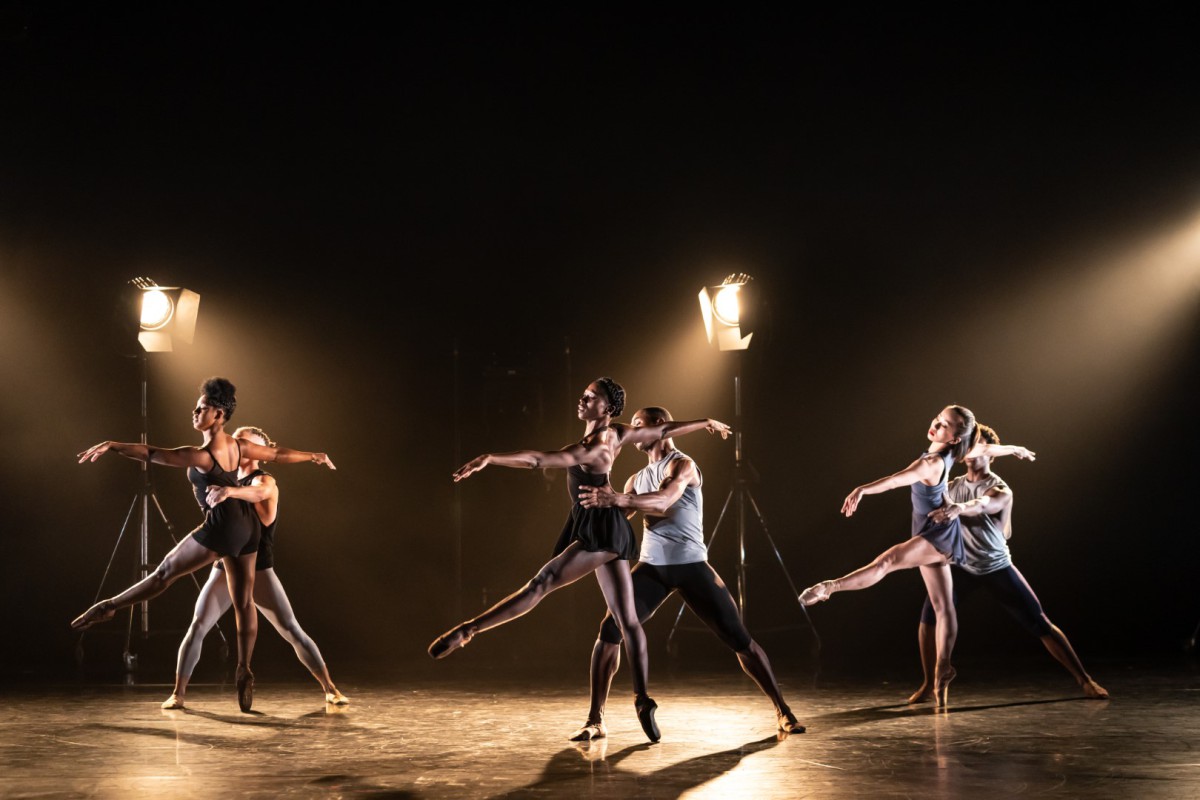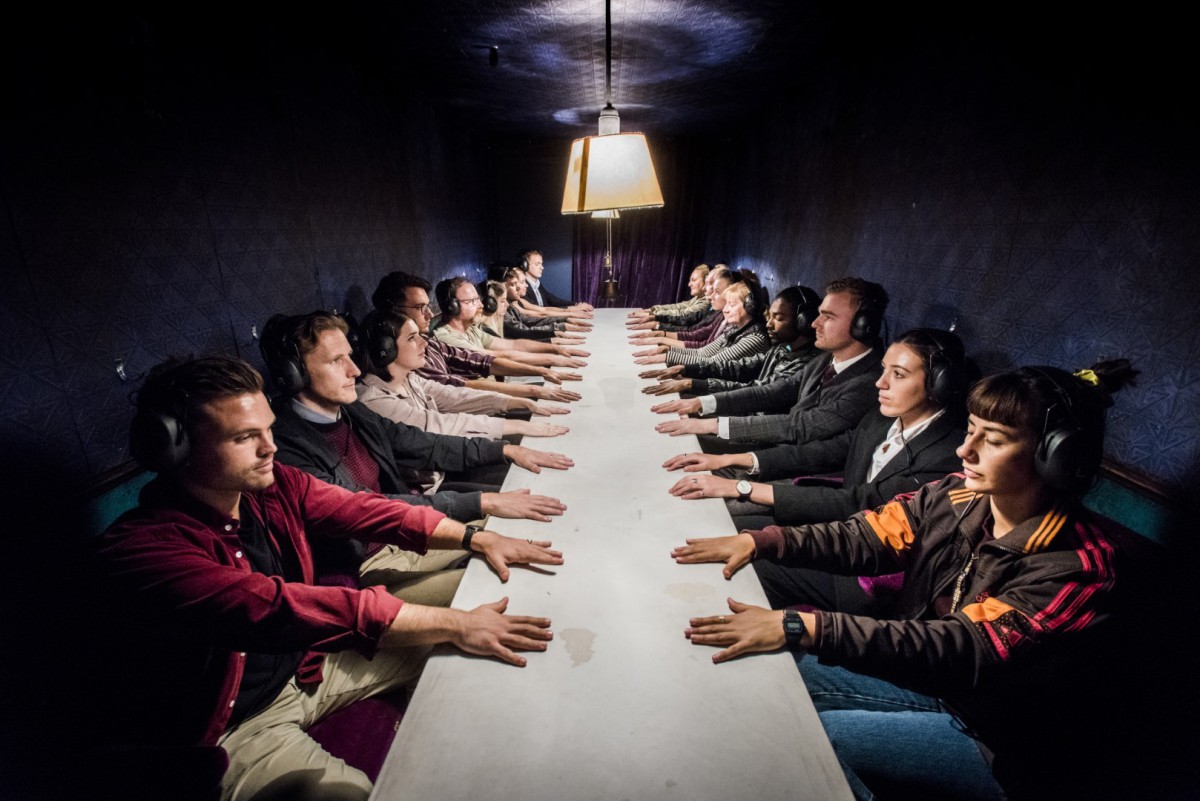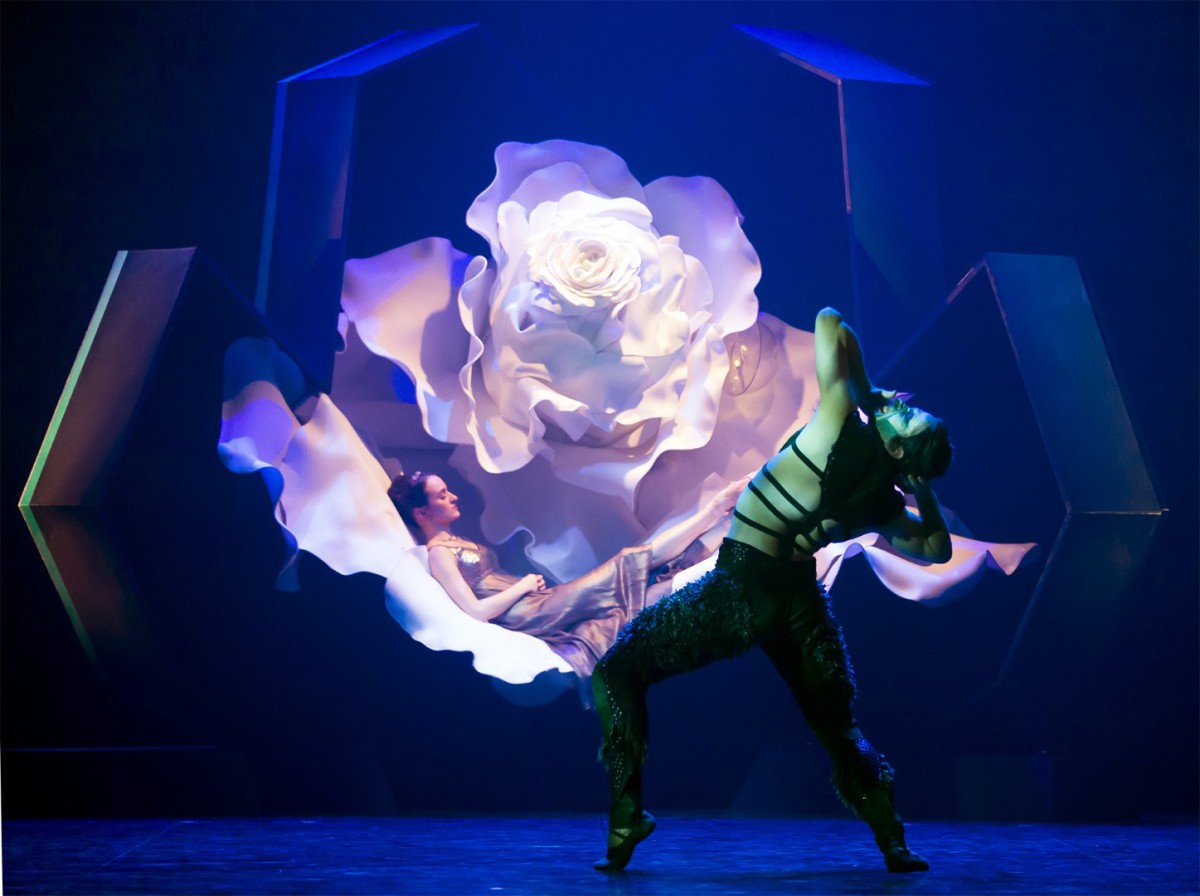Two very different but equally captivating performances makes up this touring showcase from the Ballet Black dance company.
Starting with Then Or Now, originally intended for a pre-pandemic performance but unavoidably delayed, the dance is performed against spoken word as well as music, combining poems by American poet Adrienne Rich with music inspired by a 17th century Spanish piece for solo violin.
The poetry is at first slightly jarring, with an over-pronounced recorded performance, and the lack of incidental sound exposing ever rustle in the audience. The violin is intentionally scratchy and disjointed.
Gradually they come together, with the dance sometimes directly reflecting the words, sometimes reacting to the music, but always sinuous, beautifully choreographed, and charmingly inventive. Sending Love is a high point; slightly kitschy, but surprising and delightful.
Helga Paris-Morales is a stand-out performer in this piece: her shape and movement is exquisite from start to finish, deliberate but never forced, and with an astounding mix of precision and micro-flourishes that elevate her performance.
The second piece – NINA: By Whatever Means – couldn’t be more different. We swap largely abstract dance, with a set dominated by David Plater’s sensitive lighting and a handful of chairs, for a much more literal dance biopic focused on the life of Nina Simone.
We start with Nina as a child, seeing her perform at her local church, through piano tuition, to performing at Carnegie Hall, her difficult marriage, and her involvement in the civil rights movement.
Simone always wanted a classical career but the music here contrasts completely with the first piece, particularly focusing on the jangling jazz piano of Mood Indigo and the insistent, cumulative bass of Sinnerman.
Overall the choreography in the second piece is slightly less successful.
While Isabela Coracy is an undeniable force as Simone, with a possessed energy that struts wildly across the stage with eyes as fiery as her limbs, in the later scenes director Mthuthuzeli November doesn’t seem to know quite what to do with the ensemble. They dash around with protest placards and whirl in rags – and that is visually stunning – but it lacks the subtle finesse of earlier scenes, like the casual jazz dancing of a club scene.
These are two very different pieces, but both are entrancing unions of music, words, and dance communicated through an exceptionally strong cast. It’s great to see Ballet Black venturing east from their Barbican base: let’s hope they come again soon.


